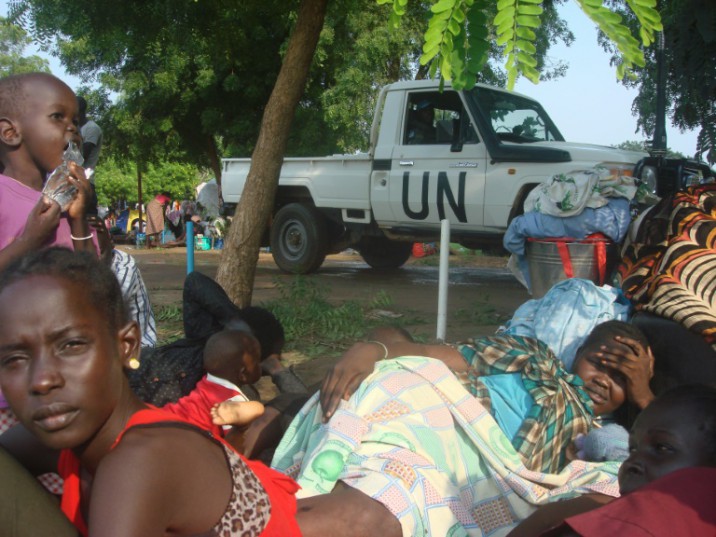Link to web article here.
![UNMISS/AFP / Beatrice Mategwa<br />Displaced residents take shelter at the UN compound in the Tomping area of South Sudan's capital Juba on July 11, 2016]()
UNMISS/AFP / Beatrice Mategwa
Displaced residents take shelter at the UN compound in the Tomping area of South Sudan's capital Juba on July 11, 2016

UNMISS/AFP / Beatrice Mategwa
Displaced residents take shelter at the UN compound in the Tomping area of South Sudan's capital Juba on July 11, 2016
Nononsi has expressed concern over detentions of civil society activists and the continued the crackdown on the press and religious minorities.
The United Nations independent expert on the situation of human rights in the Sudan, Aristide Nononsi, has expressed concern over detentions of civil society activists and the continued the crackdown on the press and religious minorities.
Following the end of his 10-day visit to Sudan on Sunday in an effort to continue engaging the Sudanese authorities and to discuss the implementation of his recommendations, Nononsi issued a press statement, saying: “I am aware of incidents that appear to be harassment and arrests targeting representatives of civil society organisations.
“I’d like to urge the Sudanese authorities to release Dr Mudawi Ibrahim and Hafez Idris, whom I believe have been held solely for legitimate actions to protect and promote human rights in Sudan.”
Ibrahim, university professor and Chair of the non-governmental organisation Sudan Social Development Organisation (SUDO), was arrested on December 7, 2016, by the National Intelligence and Security Services (NISS), the Sudan Tribune reported.
Nononsi pointed out that the suspension of Al-Jareeda newspaper in December 2016 by the NISS contradicted the interim national constitution and the International Covenant on Civil and Political Rights ratified by Sudan, saying “I raised this issue with the Sudanese authorities.”
The UN expert added that he urged the authorities to make the necessary amendments to the Voluntary and Human Work Organisation Act of 2006 to bring it into line with the constitution and international human rights standards.
Nononsi further repealed all provisions of this law that adversely affect the work of civil society organisations, calling for civil society activists to be allowed to conduct their work in an open, safe and sound environment.
The need to ensure the protection of freedom of religion was emphasised by the UN expert.
“I refer here to the destruction of churches and places of worship by the NISS, which was also used to intimidate, detain and arrest Christian religious leaders.”
He pointed out that he discussed this issue with government officials, describing it as “legitimate concerns” that the Sudanese government should address, given the importance of freedom of religion in any democratic society.
Earlier this month, Khartoum State authorities demolished a church in Soba Al Aradi suburb, 19 kilometres from Khartoum, despite pledges by Sudanese government officials to stop church demolitions.
At the beginning of the year Sudanese authorities delayed a plan to demolish some 27 churches, including Soba Al Aradi church, after stating they were not officially recognised as churches.
However, church leaders argued that the authorities refused to issue building permits when they submitted applications for the construction of churches.